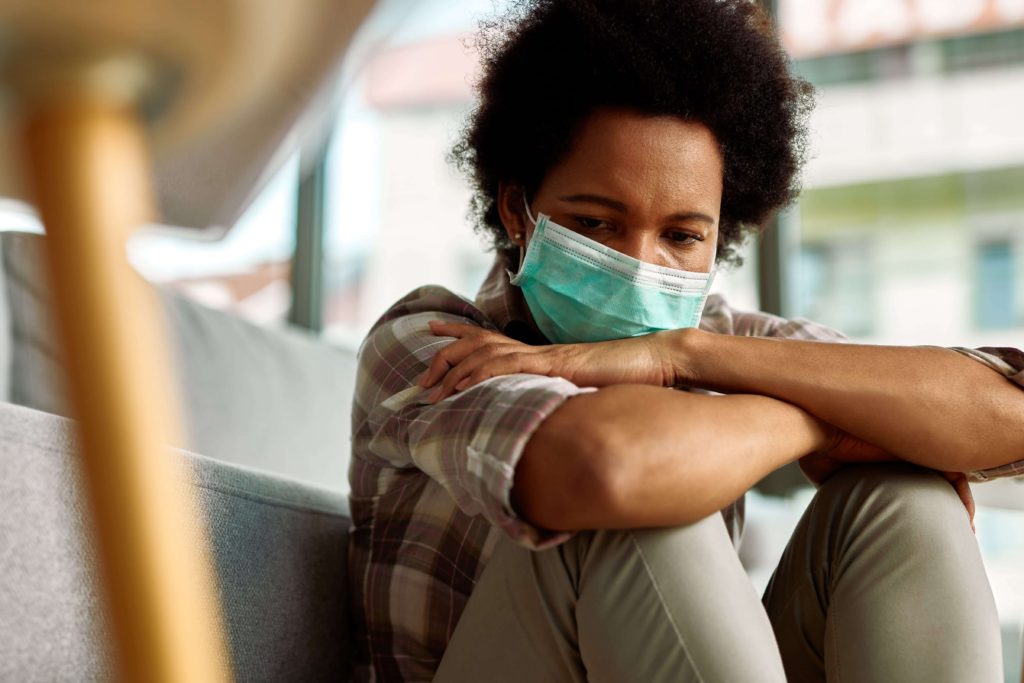
5 Proven Methods to Handle Political Anxiety and Stress
Feeling overwhelmed by politics? Learn 5 proven, therapist-backed methods to manage political anxiety and protect your mental health during stressful times.
Things are slowly coming back to normal. The CDC just gave vaccinated people the go-ahead to not wear masks in public and that’s a clear sign that we’re slowly going back to life as we knew it pre-pandemic.
You might have to physically show up to work on certain days. Visit your family and friends because it’s been a minute since y’all spent quality time together. Get invited to small gatherings. Host a party for your children. Start going on dates again. But there’s only one problem. The anxiety of it all.
How did we do it before the pandemic? It seems like ages ago when we had full-on interactions with others but it’s only been a year. One that weakened our social skills and our ability to connect with people. We’ve become so use to our personal spaces, the same four walls, the same people, the same routines – that letting outsiders in, now feels uncomfortable.
Our re-entry back into society may be difficult than we thought it would be when all we wanted was to go outside. A recent study showed that nearly half of Americans (49%) were uncomfortable about getting back to in-person interactions post-pandemic including (48%) of people who were vaccinated. It’s not just you that’s been experiencing heightened social anxiety, more than 42% of people reported increased anxiety in the past year.
“You can’t stop the waves but you can learn to surf.” – Jon Kabat Zinn
Take one social interaction at a time. Invite a friend or two over and make conversation with them, take a walk to the nearest park, go to the office twice a week, spark a conversation with your neighbor…however you choose to do this, there are no rules. Pace yourself for shorter periods like staying at a gathering for a maximum of 20 minutes. Go as slowly as you’d like with socialization but keep track of your progress which will build your confidence.
No is a complete sentence. Practice saying no when you feel uncomfortable in social settings. If you don’t want to go to the party, it’s okay to cancel. If you get tired of interacting with others, go back home. If a conversation is going on for too long, you can excuse yourself from it. Treat yourself kindly as you navigate being amongst others again. You get to decide what works for you and that may mean not indulging in activities that heighten your anxiety. Draw the line where you need to and remember you’re doing it for yourself.
What are your anxiety triggers? Is it the thought of conversation, judgment, failure, interaction? Once you know what makes you anxious, you can identify how to cope. Examples of coping mechanisms include;
Remember that we haven’t all been here before (pandemic-wise) so we are in this together. Chances are that your closest family and friends are also experiencing social anxiety. Seek to learn from them how they’ve been coping with their transition back to society. Talk about your fears and how they make you feel. Seek pointers about what to do in social settings. Sharing also lets them know that they need to extend grace to you especially when they expect you to show up for social events. A little more empathy, support, and understanding from those who love you will go a long way into making you feel so much better. Social anxiety thrives in isolation so seek connection where it can be found.

Social anxiety is a mental health disorder and there’s no shame in that. Seeking help from a professional will equip you with the right skills you need to adapt better to social situations. It will also increase your self-awareness – to help you understand your irrational fear and how you can overcome it.


Feeling overwhelmed by politics? Learn 5 proven, therapist-backed methods to manage political anxiety and protect your mental health during stressful times.

Struggling to understand your partner’s anxiety? Learn how dating someone with anxiety can work with real tips, red flags, and support strategies that help.

Feeling overwhelmed by noise, screens, or crowds? Learn the signs of overstimulation, what causes it, and science-backed ways to soothe your mind and body.

Discover why first responders face a hidden mental health crisis and what can be done. Real stories, urgent stats, and expert-backed solutions inside.
Thanks for subscribing!
Healing Springs Wellness Center
1006 S Main Street Suite 4 Plantsville, CT 06479
Tel: 860-385-1472
E-mail: info@healingspringswellness.com
© 2022 HealingSpringsWellness All Rights Reserved | Website by BlueCheck